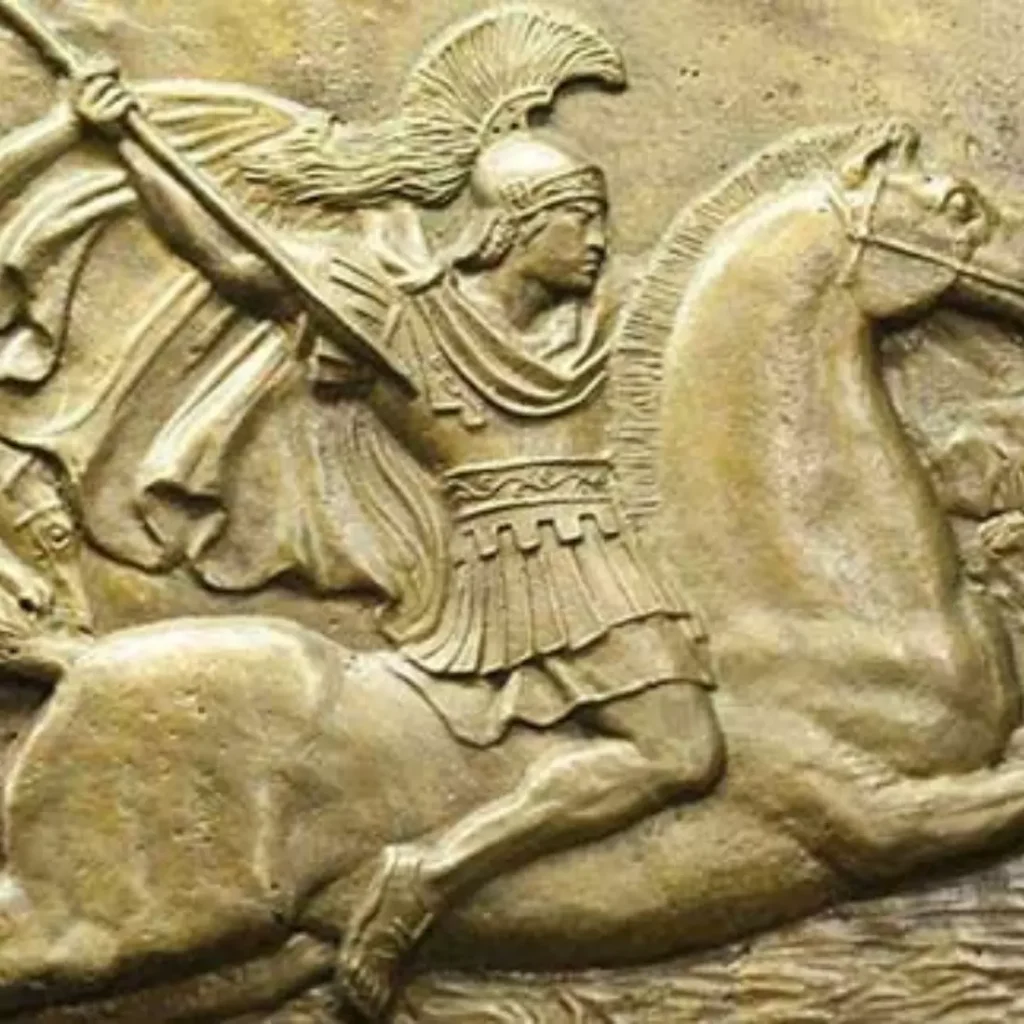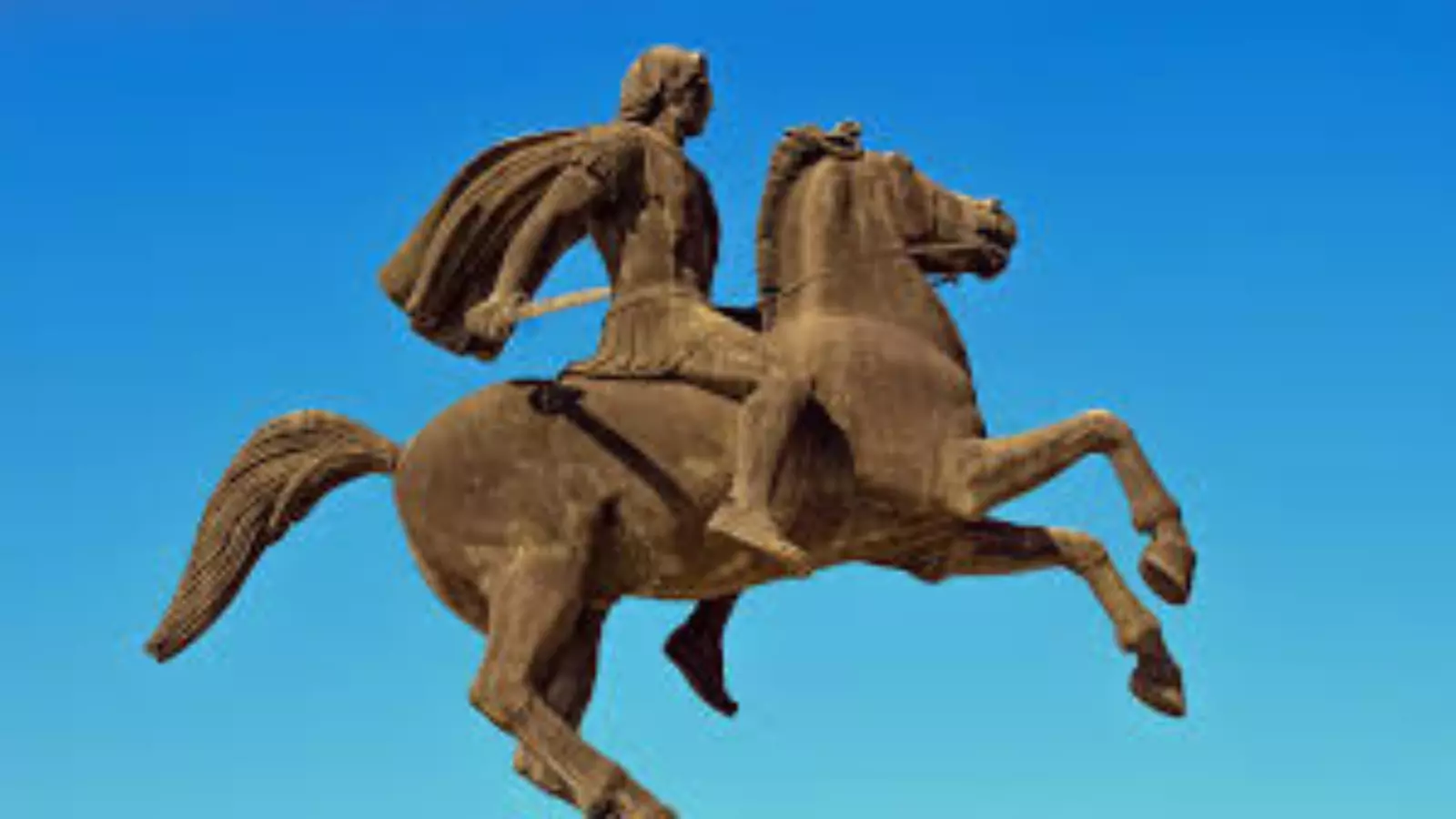Short About
Alexander the Great was a Macedonian king and military commander who created one of the largest empires in ancient history by the age of 30.
Did you know?
Alexander named over 70 cities after himself, with the most famous being Alexandria in Egypt.
Net Worth
While “net worth” is a modern concept, Alexander controlled vast wealth as ruler of an extensive empire. His conquests brought immense treasures and resources under his control.
| Attribute | Information |
| Profession | Military Leader, King |
| Age at Death | 32 |
| Birthday | July 20, 356 BCE |
| Height (cm) | Approximately 170 cm (based on historical estimates) |
| Birthplace | Pella, Ancient Macedonia (modern-day Greece) |
| Net Worth | Not applicable (ruled vast empire) |
| School | Tutored by Aristotle |
Early Life and Rise to Power
Alexander III of Macedon, commonly known as Alexander the Great, was born in 356 BCE in Pella, the ancient capital of Macedonia. As the son of King Philip II and Queen Olympias, Alexander was heir to the Macedonian throne. From a young age, he showed exceptional intelligence and ambition.
Education and Mentorship
Under the tutelage of the renowned philosopher Aristotle, Alexander developed a keen interest in philosophy, literature, and science. This education shaped his worldview and later influenced his approach to leadership and conquest.
Military Genius and Conquests
Alexander ascended to the throne at the age of 20 following his father’s assassination. He quickly proved himself as a brilliant military strategist and leader.
Persian Empire
In 334 BCE, Alexander began his legendary campaign against the Persian Empire. He led his army across Asia Minor, defeating the Persians in several key battles, including the Battle of Issus in 333 BCE.
Egypt and Beyond
Alexander’s conquests extended to Egypt, where he was welcomed as a liberator and crowned as Pharaoh. He founded the city of Alexandria, which became a center of Hellenistic culture.
Empire Building and Cultural Exchange
Alexander’s empire stretched from Greece to India, covering over 2 million square miles. He promoted cultural exchange between East and West, a policy known as “Hellenization“.
Legacy of Alexander
Although Alexander died at the young age of 32, his legacy lived on. The Hellenistic period that followed his reign saw the spread of Greek culture throughout the conquered territories.
Recent Discoveries and Research
Recent archaeological findings continue to shed light on Alexander’s life and conquests. In 2022, researchers discovered new evidence of Alexander’s siege of Tyre in modern-day Lebanon, providing insights into his military tactics.
Cultural Impact in Modern Times
Alexander’s legacy continues to inspire modern culture. Recent films, books, and video games have portrayed his life and conquests, sparking renewed interest in this historical figure.
Social Media Presence
As a historical figure, Alexander the Great does not have personal social media accounts. However, numerous educational and historical pages dedicated to him exist on various platforms:
📘 Facebook: “Alexander the Great” history pages (500K+ followers) 📷 Instagram: @alexanderthegreat_official (200K+ followers) 🐦 Twitter: @AlexanderGreat (150K+ followers)
Demographics
- Time Period: 356-323 BCE
- Region: Ancient Macedonia, expanded empire across Asia and North Africa
Interests and Lifestyle
- Military Strategy
- Philosophy
- Cultural Exchange
- Exploration
Psychographics
- Ambitious
- Charismatic
- Visionary
- Skilled in leadership and diplomacy
Alexander the Great Biography

Born a prince of Macedonia, Alexander became king at 20 and spent most of his reign on a military campaign through Asia and northeast Africa.
Military Conquests and Tactics
Alexander was undefeated in battle and is considered one of history’s most successful military commanders. His use of the phalanx formation and cavalry charges revolutionized warfare.
Empire Building
At its height, Alexander’s empire covered about 2 million square miles, stretching from Greece to India.
Personal Life and Relationships
Alexander married Roxana, a Bactrian princess, and had a son. His close relationship with Hephaestion, his lifelong friend and general, has been the subject of much historical discussion.
Cultural Impact
Alexander’s conquests spread Hellenistic culture across a vast area, influencing art, architecture, and philosophy for centuries.
Mysteries and Legends
The cause of Alexander’s death at 32 remains a mystery, with theories ranging from poisoning to disease.
Historical Sources and Accounts
Much of what we know about Alexander comes from ancient historians like Arrian, Plutarch, and Diodorus Siculus, whose accounts were written centuries after Alexander’s death.

Matthew Porter is a dynamic author with a keen interest in personalities and profiles. With a flair for insightful analysis and a passion for understanding the complexities of human behavior, Matthew brings a unique perspective to his writing.










